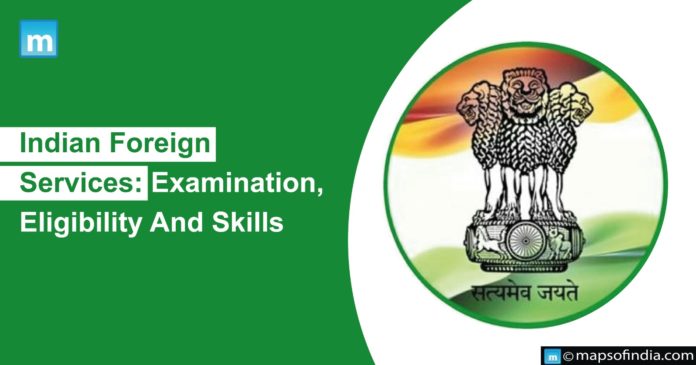The Indian Foreign Services (IFS) comes under the Ministry of External Affairs of the Government of India. It is a central civil service and a diplomatic service of India. Comprised of civil servants, the department manages India’s external relations, provides consular services and marks India’s presence in international organizations. Additionally, they serve in the Presidential Secretariat, Prime Minister’s Office and MEA Headquarters in New Delhi. They also manage regional passport offices nationwide and hold representative positions in various ministries.
The Union Public Service Commission is the government’s apex body that conducts the Indian Foreign Service Examination to recruit IFS officers. The IFS officers work as a diplomat for the country.
Eligibility
- To become an IFS officer, the candidate’s nationality should be a Citizen of India, a Subject of Bhutan or a Subject of Nepal.
- A person who came to India before January 1, 1962, as a Tibetan refugee, for permanent settlement in India.
- Migrants who have come to India for permanent settlement from Burma, Pakistan, Sri Lanka, East African countries of Kenya, the United Republic of Tanzania, Uganda, Zambia, Zaire, Malawi, Vietnam and Ethiopia.
- Candidates applying for the exam must hold a degree from any recognized university.
- Candidates who are eligible for the examination can attempt it six times.
- The number of attempts for candidates belonging to Other Backward Classes shall be nine.
- Candidates with any benchmark disability who belong to the General and EWS categories will be given nine attempts.
- The age limit for the examination is 21 to 30 years as of August 1 of the exam year.
- Further, there is a relaxation of the age limit in some different categories such as SC/ST candidates, OBC candidates, Defence Services personnel, candidates from the state of Jammu and Kashmir etc.
What are the skills required to become an IFS officer?
-
Listening Skills
An IFS officer needs to hear appropriately to accurately receive and interpret information in the communication process. Listening skills are required to prevent misinterpretation of data.
-
Emotional Intelligence
Emotional intelligence measures an IFS agent’s ability to recognize and manage their emotions and those of others, individually and in groups. Therefore, a logical assumption is that people with higher IQs perform better at work and in life.
-
Analytical skills
IFS agents must be able to absorb large amounts of information. Then they should filter it down to something manageable and logical. IFS officers should have strong analytical skills to assess them in practical situations.
-
Communication Skills
IFS officers must have good communication skills to understand information accurately. Active listening is essential – paying close attention to what others are saying and clarifying ambiguities by reframing their questions to deepen understanding.
-
Self-Regulation
An IFS officer must possess self-management or self-regulation, an important personal skill. Self-regulation is how a person manages and controls their emotions, abilities and inner resources.




